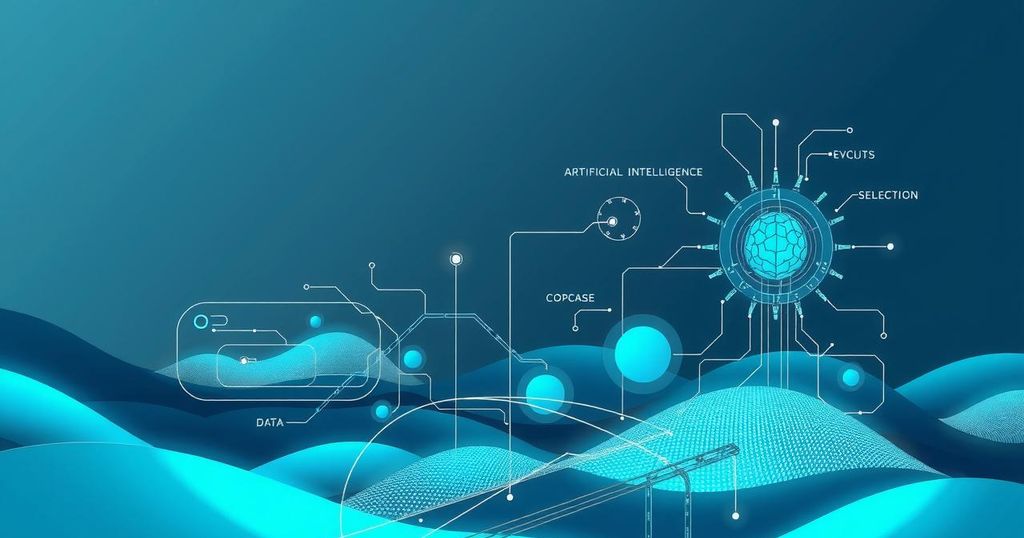Artificial Intelligence: Smart Machines and Uncertain Futures
- The rise of artificial intelligence raises significant questions.
- Students are increasingly using AI for academic tasks.
- AI has the potential to disrupt entire industries.
- There are serious ethical concerns about data privacy.
- Critical thinking may suffer from an over-reliance on AI.
The Swift Rise of AI Technologies
Artificial Intelligence (AI): a term that seems to be everywhere lately, capturing our minds and feeding our imaginations. The rapid evolution of smart machines—think about large language models crafting eloquent emails, AI-generated images that astonish with their detail, and voice clones that sound eerily real—this progression is a lot to digest. As someone on the periphery of this technology, not a coder or algorithm guru, my view is shaped primarily by what I see in classrooms and as an everyday citizen grappling with this AI evolution.
AI’s Influence in Education
In higher education settings, the fingerprints of AI are becoming harder to ignore. Students have started leaning heavily on tools like ChatGPT for everything from research to writing assignments. I can see why—it promises quick answers and helps streamline those tiresome tasks, not to mention offering fresh ideas when brainstorming. However, I can’t shake the feeling that something fundamentally important is being lost in the process. Sure, technology promises convenience, but what happens to the intellectual challenges and the hard-fought arguments that make learning what it is? If students allow AI to do the heavy lifting, might it stunt their growth as thinkers?
The Broader Implications of AI
Stepping back, there’s a much bigger picture to consider beyond the hallowed halls of academia. AI is reshaping industries left and right, automating countless tasks and changing our work and life experiences. Some of this change is exciting—improved efficiency and productivity are real benefits. But history reminds us that these advancements don’t necessarily pave a smooth path to a perfect future. Jobs, particularly those relying on routine or data processing, are on the front lines of disruption. As many potential replacements arise, a challenging socioeconomic transition looms on the horizon, stirring anxiety about employment and the economy’s future.
Ethical Concerns of Generative AI
Let’s talk about a crucial point often overlooked: the ethical and social ramifications of AI. These systems don’t exist in a bubble; they’re deeply reliant on data generated from our human lives. This begs the question: what happens when this data is mishandled or, even worse, stolen? Data breaches are all too common and could become increasingly hazardous as AI becomes intertwined in our daily routines. On top of that, the human capacity for judgment, ingenuity, and creativity is at stake. With the convenience of technology systematically answering our queries and penning our emails, are we risking a dulling of our critical thinking? As we rely more on AI, will we become more passive and less inquisitive?
The Fear versus Reality of AI Development
Of course, there are voices out there that argue AI is harmless. They remind us that these systems aren’t sentient, lacking emotions, understanding, or care. Yes, AI imitates human intelligence, but it doesn’t truly understand. Yet, as technology races forward, I can’t help but wonder how long this human/machine boundary will hold. We’re crafting machines that execute human conversations, read emotions, create art, and even guide business strategies. Regardless of their consciousness, these systems are undeniably growing in power.
What Comes Next for Society?
So, where does this lead us? The uncertainty around AI cannot be ignored. In five, ten, or even twenty years, we may look back at this moment and chuckle at our naive concerns, or we may find ourselves entrenched in a reality that feels outright alien. Innovation is unpredictable; it’s like building a road while we’re already on the bus. And this bus? We’re all on it together, heading toward a future that’s as blurry as it is exciting.
Taking Ownership of Our AI Future
What’s the way forward? First, acknowledging AI’s complexity is key. It’s certainly not just another benign tool we can mindlessly wield. Asking penetrating questions about how we regulate, govern, and comprehend its implications is necessary. We should be proactive in educating ourselves and future generations about using AI responsibly—while also learning to think critically about its influence. After all, the future isn’t a passive construct that simply happens to us; it’s actively shaped by our choices today. Let’s be aware of what AI might do for us, but, equally important, what it could do to us.
The discussion surrounding artificial intelligence and its implications is vital as we navigate an uncertain future. As AI continues to shape industries and lives, we must remain vigilant about its influence on education, employment, and ethics. Rather than viewing AI merely as a tool, we should carefully ponder its governance and teach critical thinking regarding its use. The future is shaping up to be unpredictable, and our actions now will determine how we handle the challenges that lie ahead.




Post Comment